by Brian Hioe
語言:
English /// 中文
Photo credit: 高鈺婷 新竹市立委參選人/Facebook
New Bloom interviewed Gao Yu-ting (高鈺婷), legislative candidate for the NPP in Hsinchu City, on December 11th. Gao, originally an engineer, was part of the post-Sunflower Movement group Island March before joining the NPP.
Brian Hioe: First, could you introduce yourself for our readers?
Gao Yu-ting: I’m NPP legislative candidate Gao Yu-ting. I’m 35 years old this year and am the mother of two children. before that, I worked as an engineer at the Industrial Technology Research Institute for ten years, which is an incorporated research institute. I worked on collaborative plans related to innovation and wireless technologies.
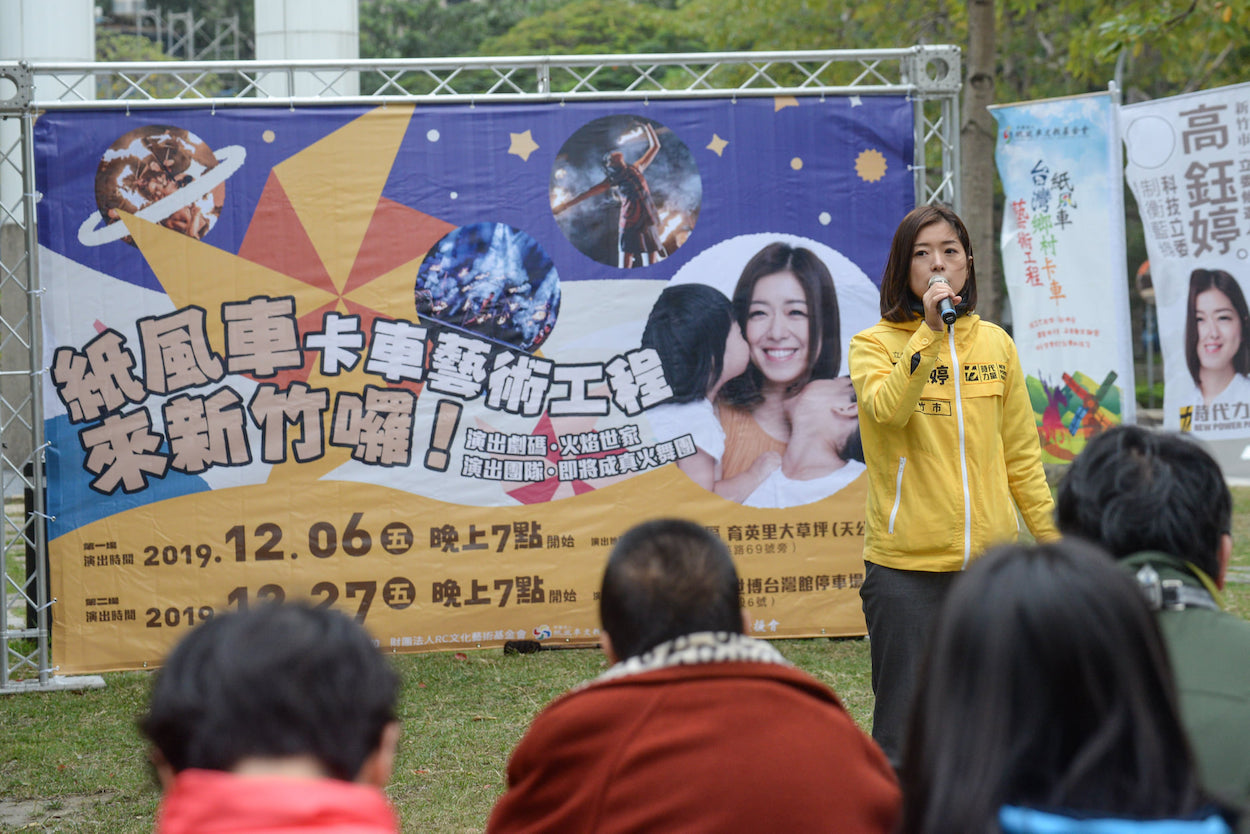 Photo credit: 高鈺婷 新竹市立委參選人/Facebook
Photo credit: 高鈺婷 新竹市立委參選人/Facebook
BH: How did you come to participate in politics? What led to your decision to join the NPP?
It was only after the Sunflower Movement in 2014 that I began to participate in political activities. At the time, I just was concerned about politics and had some views of my own regarding politics, but I didn’t participate in politics directly myself.
GYT: I’m from a pro-Taiwan family and we talked about many political matters at home. This was something that was part of our normal daily lives. Because of this, I became concerned with politics.
The six years between when Ma Ying-jeou took power up until 2014 were very painful for me, particularly regarding his attempts to push Taiwan’s cross-strait policies toward China. Up until the explosion of the Sunflower Movement, I felt that we should do something to try and make our voices heard, and there were many who felt the same way as me.
But at the time of the Sunflower Movement, I also came to the realization that I was a mother. My oldest daughter was one year and one month old at the time the movement happened. So I felt that I was a mother and that I should focus on taking care of my children.
But I felt at the same time, that I could try and influence society. I ended up joining Island March, which pushed for changes to the Referendum Act, organizing petition signing activities and discussions. This continued for two years.
Later on, Island March participated in the 2015 legislative elections in Hsinchu. The New Power Party was established in 2015 as well. Some people joined the legislative race or joined campaign teams.
We were a civil society then, so I had time to observe the NPP. The legislative candidate then was Handy Chiu. He’s a great person, so I could understand why they supported him.
At the time, I was still an engineer, so when I had time, I would go over and help out. I didn’t throw myself into it as much as I did with Island March but this gave me the opportunity to see what the NPP was doing.
The NPP continued to try and deepen its roots in Hsinchu until 2018, when local elections took place last year. Their candidates worked very hard.
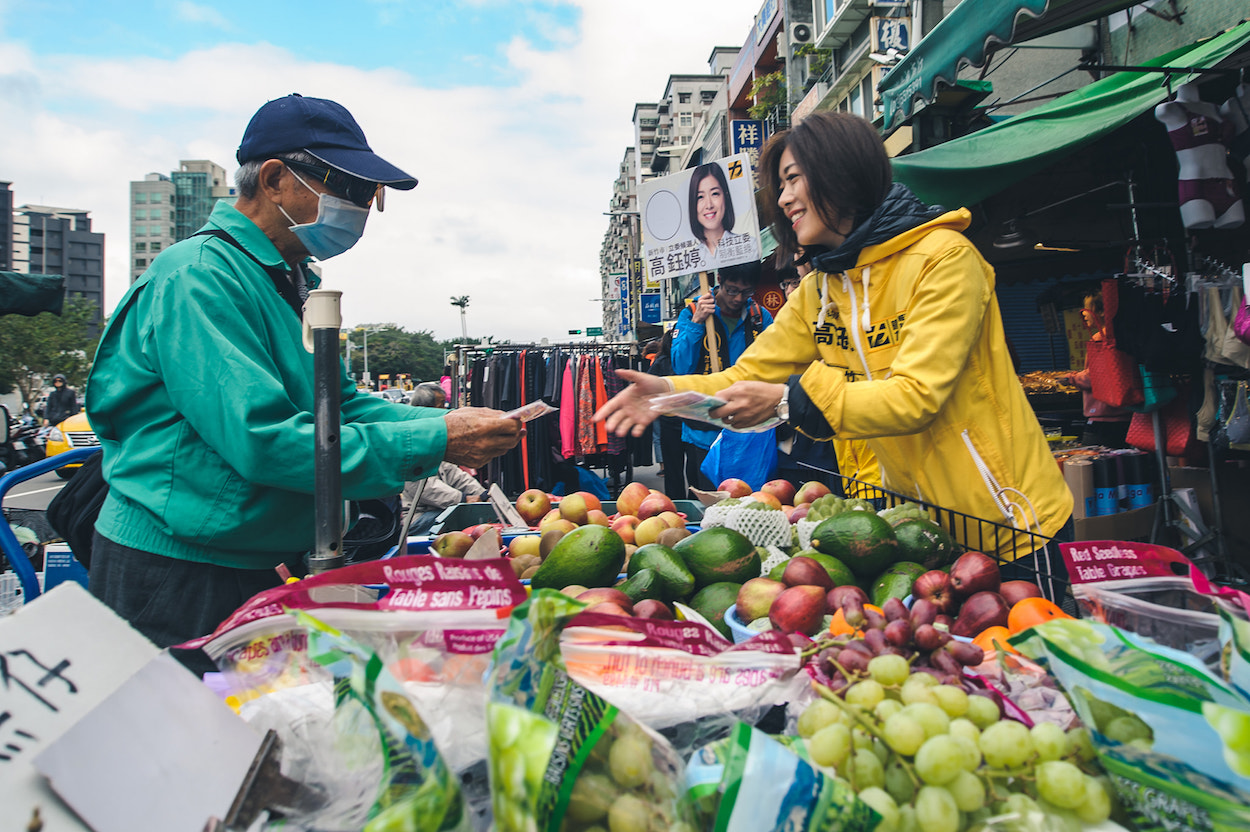 Photo credit: 高鈺婷 新竹市立委參選人/Facebook
Photo credit: 高鈺婷 新竹市立委參選人/Facebook
Then, this year, they asked me if I would be willing to run in the election. People don’t usually set it as a life goal to try running for election. I hadn’t thought about it too seriously since despite being concerned with politics, running for office seemed quite far from my life.
Because of last year’s election, in which conservative forces were able to stage a come-back, as also seen in terms of the results of the referendum, it seemed as though Taiwan wasn’t such a friendly and welcoming society, that it was actually full of discrimination and unaccepting of others. This was a large shock to me.
I wrote about my feelings then after the election results. Again, I felt that if I could do more, I would need to expand my ability to influence things, whether this was beginning from myself, or the people around me. When they originally asked me to run, I wasn’t originally willing to run, so I refused them right away. I thought that I had a family to take care of, and that my children were still small. One is three years old now and the other is seven years old.
But after they came and talked to me about it again, they also told me that I represented the majority of families in the city, that because of having a family, I could understand their needs better. Then I thought again about how I would need to expand my influence if I wanted society to improve. I had come to understand that we were a community with a shared destiny, yet the election results weren’t what I had hoped for, I hadn’t worked hard enough.
So then I decided to run. I joined the NPP and became their Hsinchu legislative council candidate.
BH: What do you think is important about this year’s election, compared to previous years? To this extent, what are the issues that Taiwanese voters are focused on? Are they focused on issues regarding cross-strait relations or more domestic issues? What do you think are the issues that voters in your electoral district are focused on?
GYT: The NPP is a new political party. I’ve heard criticisms before regarding this, that the NPP isn’t actually a political party able to maintain a real, sustained campaign, or is a speculative party. But we’ve been working hard in the last four years to establish deeper ties in Hsinchu, and we were successful in our campaigning last year.
Last year, of candidates in Hsinchu city, Hsinchu county, and Miaoli, we ran a total of seven candidates. Six won, through the hard work of our party headquarters and campaign teams. Our legislative candidate in 2016, Handy Chiu, wasn’t successful, but he stayed in Hsinchu after the campaign, didn’t leave, and continued building local ties.
It’s very clear that me running this time as a district candidate isn’t to try and win party votes, nor that I didn’t run as a city councilor with the hopes of eventually running for legislator next time.
The policy we’re putting out is also important. The average age in Hsinchu is 37 years old. I’m younger than that by two years. Likewise, though Hsinchu isn’t a municipality, it’s the city with the fourth highest birthrate in Taiwan. Like mine, here are many families in Hsinchu with engineers, because of the science park here.
There are many families like that In Hsinchu, who may have moved from Taipei, New Taipei, or other places for work or education. Hsinchu is a place where people can settle down and raise kids. The education level of these families may be relatively high, due to doing work related to the science park.
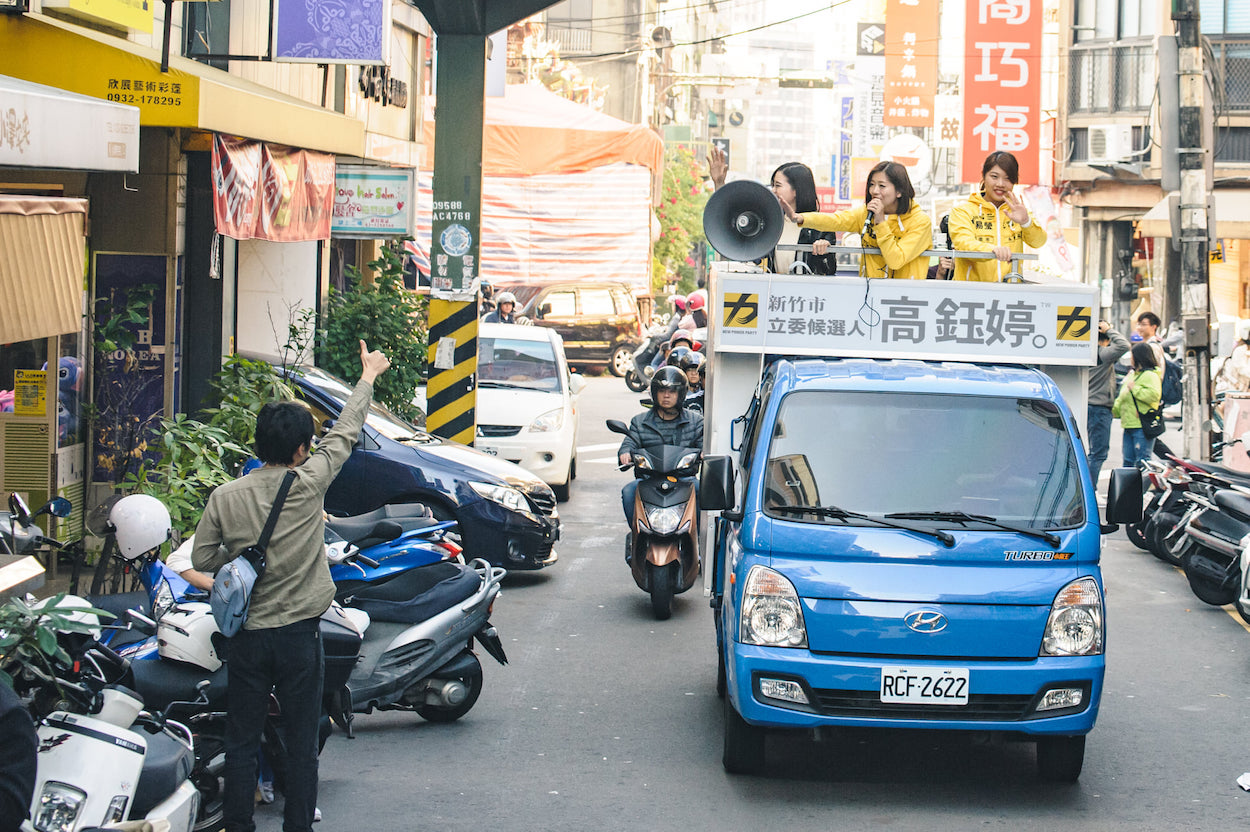 Photo credit: 高鈺婷 新竹市立委參選人/Facebook
Photo credit: 高鈺婷 新竹市立委參選人/Facebook
So this is reflected in policy we’re hoping to push for, such as regarding childcare or housing justice. Again, Hsinchu has the fourth-highest birthrate, so there’s a need for a public childcare policy. The government supposed to provide for children in childcare centers between the ages of zero and two years old but there is not one in Hsinchu. For the proportion of public to private kindergartens, for children between the ages of three and six, there is a ratio of three to seven.
There is the third-highest number of childcare centers in the country in Hsinchu, with 20% of families needing childcare. If they originally weren’t from Hsinchu, they might not have any family members that can help them out with childcare responsibilities. So then, childcare because not only a financial burden on the family, but if a child gets sick, then a family member will need to take care of them.
My husband and I are a double income family, so it’s the case that we have to alternate days off in order to take care of our children. We’re very clear on addressing such needs in our policy in calling for public childcare facilities and increasing the proportion of kindergartens built.
There are 157 companies in Hsinchu with over 100 employees, but only four have childcare for their companies. I really do hope that childcare set up in companies can help parents, because that way, parents don’t have to worry about their children, they don’t need to spend time picking up their children or driving them, and they can easily pick up their children when they get off of work. This can contribute to a company’s competitiveness and productivity, as well.
On the point of housing justice, it’s not the case in Hsinchu that, as with Taipei, you would have to not eat or drink for fifteen years to afford a house. But it’s the case that in Hsinchu, you would have to not eat or drink for eight years.
Housing prices have doubled in the last decade and expenses have also continued to increase. This is something very difficult for young people. So to address this, the NPP is pushing for policy against the hoarding of properties and we also hope to help lower prices for younger people. We hope that when new properties go on the market, their prices are registered, so that exchanges are transparent, rather than as it is now, in which buyers or construction companies can control this.
BH: How do you think that this present set of elections reflects young people participating in politics?
GYT: On this point, I think it is quite clear. The NPP is a party that is very willing to run young people as political candidates. It’s also a party that works hard and which is very focused on running candidates with expert backgrounds. For us young people, that represent new politics, we place great importance on expertise, and not on simply providing services to voters such as fixing ditches, street lamps, showing our faces, or making appearances in public gatherings.
As I said, Hsinchu is a comparatively younger city. We’re pushing for policy to help young people and in running younger candidates, we’re hoping that the voices of young people can be heard. We’re not aiming just to provide services, but to put forward public policy. It’s only by putting forward a future-oriented policy that you can win the support of young people.
For example, during city council elections in Hsinchu last year, the NPP won three out of four races in Hsinchu city. These three candidates are all younger, they’re around thirty. One is a young mother, one is single and lives here, and the other finished an MA in America before returning to Hsinchu. 1/3rd of the city council was also swapped out, with new politicians replacing older ones, including younger politicians. These were people that in the past might have only served as assistants or political workers or been journalists.
It’s through establishing firm local ties, both with young people and older people, that they were able to win support. You can see the direction of change in this.
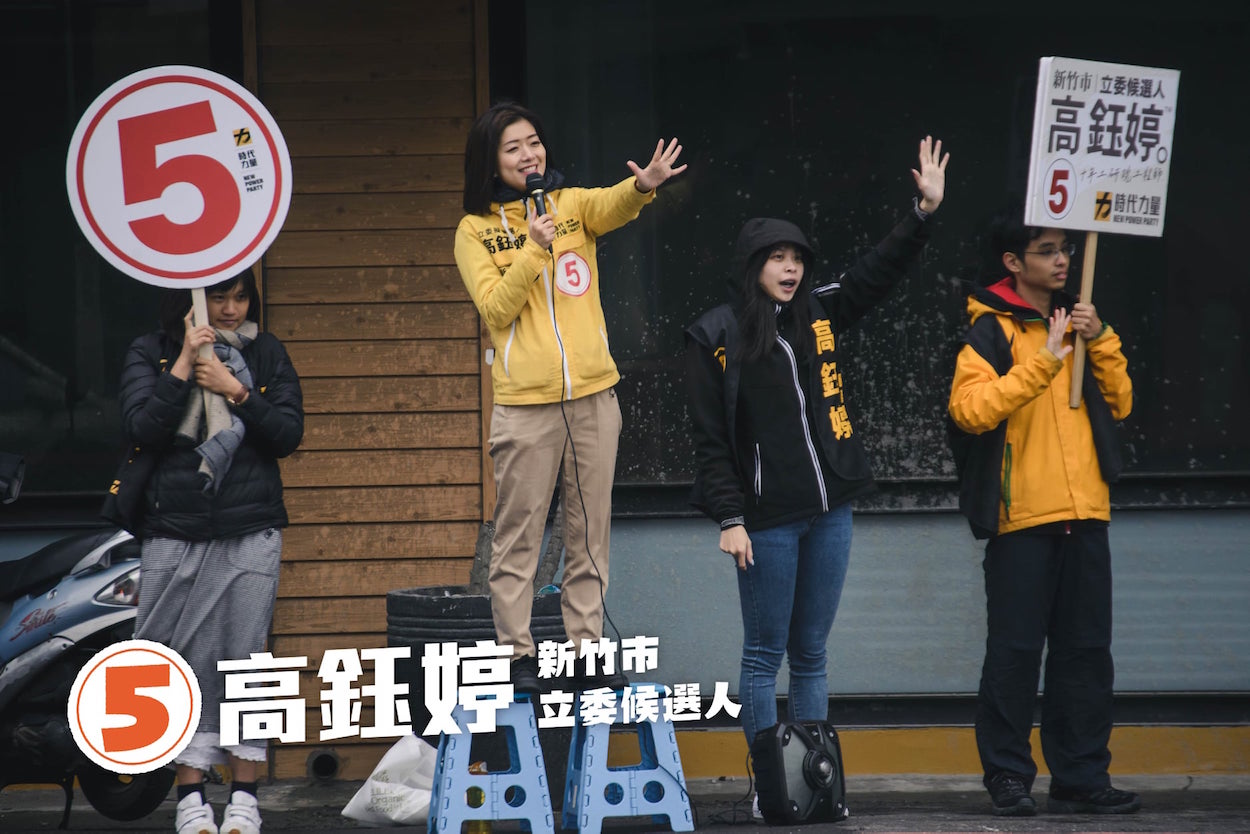 Photo credit: 高鈺婷 新竹市立委參選人/Facebook
Photo credit: 高鈺婷 新竹市立委參選人/Facebook
BH: Do you think that political participation by young, progressive people in Taiwan can be situated alongside international trends in politics, regarding young politicians running on progressive platforms in the US, Europe, and beyond?
Yes, that’s right. I believe that young people are more progressive. You can see this with the issue of gay marriage. The NPP has strongly supported gay marriage Sometimes you’ll have people, for example, in a vegetable market that come up and tell me that they won’t support me because of the NPP’s support for gay marriage.
But it’s very rare for a young person to come up and tell me this. I think that this reflects generational differences. And you can see this internationally too, with the election of a 34-year-old as prime minister in Finland, someone is not so different from me in age, or a UN council member, who is also a mother, bringing her child into the assembly.
It has to do with one’s attitude toward politics. Politics should be realized in everyday life. I, personally, very much welcome this tide of progressive politics and I hope that these values can become more widespread, to let us move forward.
BH: Lastly, what would you have to say to not only Taiwanese readers, but also international ones?
What I would want to say to international readers is that I hope everyone can continue to pay attention to China and Hong Kong, to China and Taiwan. Because Taiwan and Hong Kong are at the frontlines when it comes to China’s efforts to expand its authoritarian governance.
After the Sunflower Movement, many young people sought to enter politics. Younger people are more concerned with politics. That more young people are willing to express their views is a good thing. As for Hong Kong, I hope that more people can pay attention to their situation.
Looking at the situation in Hong Kong from Taiwan we might feel that there’s nothing we can do but to offer our sympathies or to make our views known. I hope that if I am elected legislator, I can do something to help through amending the law. I hope that people internationally do not come to believe that they have no way to help them. If you are willing to help, if you are not silent, then in the future, when you encounter a similar situation, there will be people willing to stand with you.
My background was in industrial research as an engineer. So with the US-China trade war, I see it as fundamentally being a technology war. Taiwan plays a key role in hardware and this is a key source of Taiwan’s competitiveness.
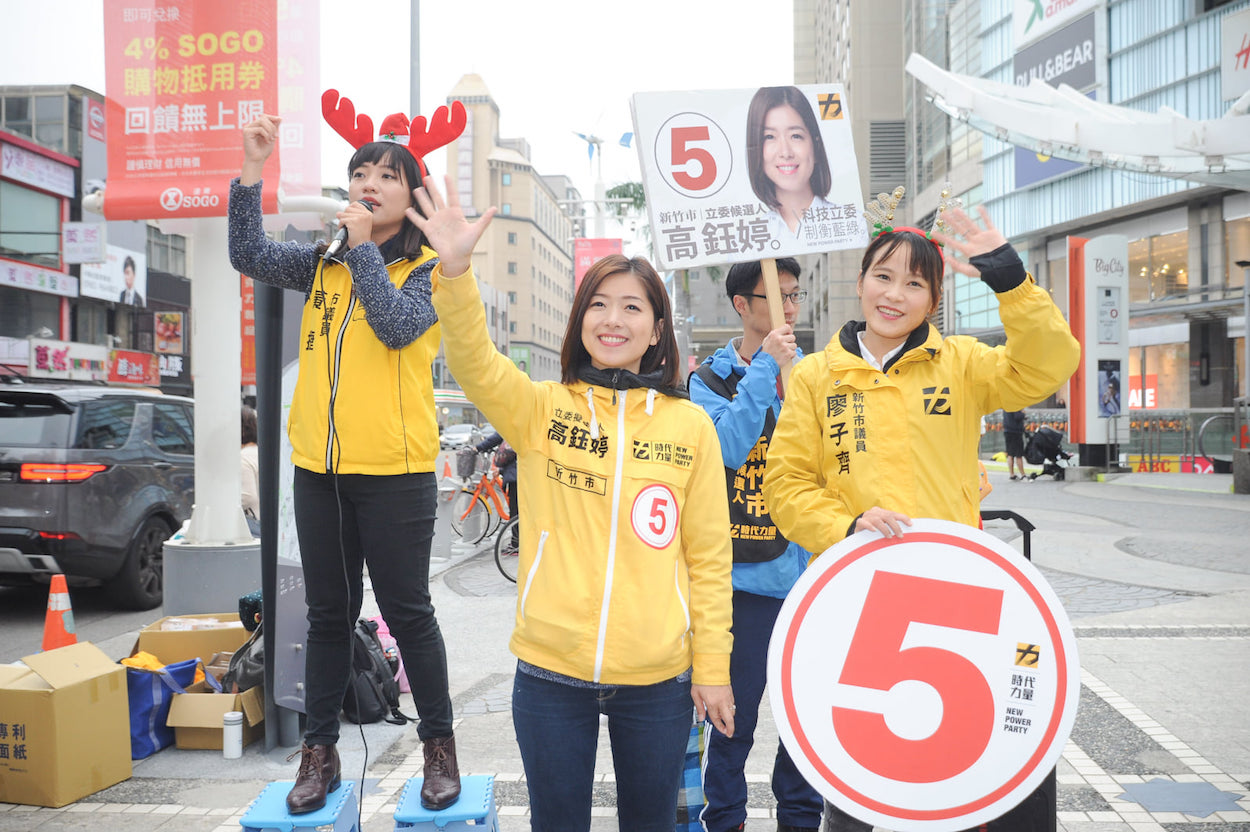 Photo credit: 高鈺婷 新竹市立委參選人/Facebook
Photo credit: 高鈺婷 新竹市立委參選人/Facebook
Taiwan’s technological capacities are advanced and its talent very skilled. But China is attempting to expand its political influence and economic hegemony through technology, such as with the 5G industry.
We should be aware of this, that we currently have certain technology advantages, but are threatened by China. China trades technology for access to its market, and it hopes to get this from Taiwan, through Taiwanese that go to China, or through access to Taiwanese technology, or by doing the same with America. Taiwanese companies may think that they are going to China to make money there, but this is what happens.
Everyone knows this and this has continued to take place for twenty years. But Taiwan needs to beware of China’s United Front strategies, including with regards to technology and economic competitiveness. Taiwan needs to be able to leverage on its particularities in the US-China trade war.

